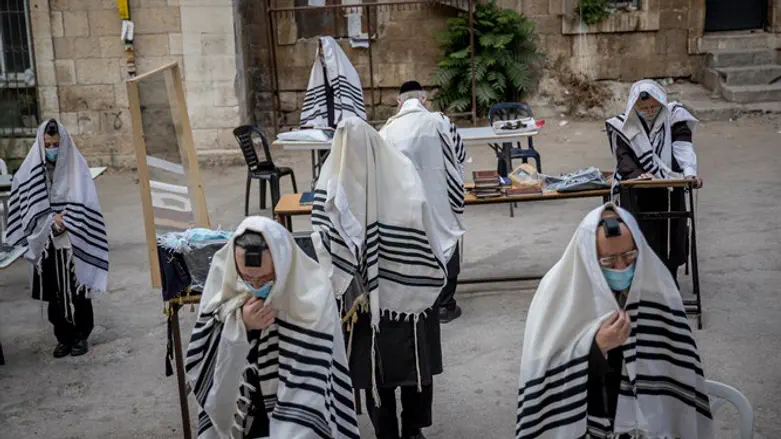
As the Jewish world prepares to usher in what is typically a period defined by family and communal gatherings, efforts are being made to ensure that the holiday spirit will continue to define Rosh Hashana and Yom Kippur, despite the obvious tensions and restrictions of the coronavirus epidemic.
Particularly in Israel, Jewish organizations are working to adapt to prayer services that will be limited in size and scope.
Two such organizations, the Tzohar Rabbinical Organization and Ohr Torah Stone’s Yachad Program for Jewish Identity, have been partnering for several years to promote community based high-holiday services that engage secular Israelis and inspire people from all ends of the spectrum to celebrate their common heritage together.
In response to this year’s limitations, the organizations are planning to take as many services as possible into public outdoor spaces. The six-year-old “Shofar in the Park” initiative has already seen over 230 locations sign up for the program, with more joining every day. In addition to the traditional shofar blasts, Rosh Hashana related programming for families will add to the holiday atmosphere.
“This year is defined by a massive challenge and we recognize and respect that people are afraid to come out for lengthy and crowded services,” says Tzohar Founder and Chair Rabbi David Stav. “Our goal, as always, is to make the services as accessible as possible and ensure that this time will be meaningful both for more observant and secular communities, for whom these days are a particularly important spiritual highlight of the year.”
"The Shofar in the Park initiative will enable hundreds of thousands of Israelis from all over the country to hear shofar blasts in the public sphere while safeguarding their health and the health of others," says Ohr Torah Stone President and Rosh HaYeshiva Rabbi Dr. Kenneth Brander. "In particular now, during this time of pandemic, as there is so much strife and divisiveness between us, it's more important than ever to make connections between the various groups in Israeli society against the backdrop of the symbols that unite us. May this year bring health, unity, connection and understanding between us all."
Addressing the concerns for those who will be staying home or joining a smaller, outdoor, condensed service, Ohr Torah Stone has released an abridged high holiday prayer book (machzor) to address the health and safety concerns of the community. The editors of the prayer books, which include both Ashkenazi and Sephardi traditions, estimate that they have abridged the service to about 40% of the traditional service with an eye on preserving all elements of halachic Jewish law and without compromising on the spiritual and liturgical highlights.
Rabbi Brander who co-edited the special edition prayer book with Ohr Torah Stone's Rabbi Yehoshua Grunstein, said that precedent exists in Jewish history for editing of texts in light of external dangers. “Throughout Jewish history and tradition, the prayer service of the high holidays has been defined by a desire to connect between the Jewish people and God,” he said. “But when circumstance makes this challenging, like in times of pandemic or in certain protocols adopted for our IDF soldiers, Jewish law demands from us to condense the service so as to prioritize health and safety while focusing on the core themes of the prayer service.”
Unlike in years past where individual Yom Kippur prayers would host hundreds of participants, this year smaller gatherings in courtyards and gardens are being organized. “On Yom Kippur, one of the holiest days, our hope is that people will see this as a chance invite neighbors and friends who might not typically participate in communal prayers and ensure that we are making the best and most meaningful time out of a deeply challenging situation,” said Rabbi Stav.
